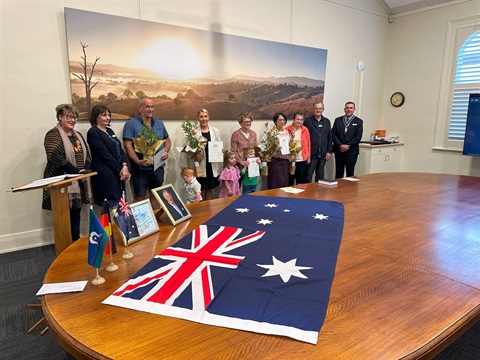
Kate O’Brien, Director of the Department of Immunization, Vaccines and Biologicals at WHO
Despite multiple health-related crises, the year 2023 will be remembered as a triumph in global health, with countries coming together to stamp out infectious diseases through dedicated efforts and collaborative action. As the World Health Organization (WHO), celebrated its 75th year in April 2023, a spirit of unity prevailed, reminding us that together, we can provide everyone with the best chance for a healthy life.
On May 5, 2023, WHO Director-General, Dr Tedros Adhanom Ghebreyesus, declared the end of the COVID-19 global health emergency. This momentous occasion highlighted the innovation of vaccine researchers, the grit and resolve of vaccine delivery programmes around the world, political commitment by government leaders, and the incredible dedication of health and care workers.
“The Big Catch-up” initiative announced earlier in the year by WHO and key partners marked a coordinated effort to reverse the historic declines in childhood vaccination resulting from the pandemic and resume the hard-fought gains that will put communities and countries on the path to the Immunization Agenda 2030 (IA2030) goals which have been committed to at the World Health Assembly. Promising signs of recovery in childhood immunization levels were apparent though unevenly felt across countries, offering hope for being able to reach a future where no child dies of a vaccine-preventable disease.
September brought a pivotal moment with the meeting of the Strategic Advisory Group of Experts on Immunization (SAGE) issuing crucial new recommendations for vaccines against malaria, dengue, and meningitis.
In a key milestone for malaria vaccines, the Malaria Vaccine Implementation Programme (MVIP), will be completed this December. This is a time to acknowledge the lessons learned and celebrate the substantial health gains during the RTS,S pilot introductions in Ghana, Kenya and Malawi, to inform the scale-up of malaria vaccines in countries of Africa and beyond where malaria is a public health threat. The results from the evaluation of the MVIP in the three African countries show a strong safety profile and high-impact results: a 13% drop in early childhood deaths and hospitalized severe malaria, and high demand for malaria vaccine.
The MVIP is a model public-private partnership and a WHO flagship programme that has been implemented by colleagues at all levels of the Organization, with significant contributions by international and country-level partners. Last week, the WHO
MVIP team, received the “Director-General’s Award for Excellence for Exceptional Contribution to the Organization by the 3-level Team for Malaria Vaccine Implementation.” Congratulations to WHO colleagues and partners, who were central to the success of the programme. We look forward to further collaboration with partners in 2024 and beyond to support the malaria vaccine introductions into country vaccine and malaria control programmes, so more children can benefit.
This will begin in early 2024. With two life-saving safe and effective malaria vaccines now recommended for use and pre-qualified by WHO (RTSS in July 2022 and R21 prequalified on 21 December 2023) and supported by Gavi, the rollout will begin. Shipments of the first WHO-recommended malaria vaccine, RTS,S/AS01, have already started, with 331 200 doses reaching Cameroon on 22 November 2023. This development is undoubtedly a significant stride in the global fight against malaria.
Malaria is not the only vaccine news. The dengue vaccine, “Qdenga”, holds the potential to protect youth from a significant public health threat and SAGE provided recommendations on its use and rollout. Additionally, a new Men5CV vaccine against meningitis is set to make a positive impact in the African meningitis belt. In the fight against cervical cancer, there’s reason for optimism with substantial progress on HPV vaccination. The endorsement of the single-dose recommendation by WHO and its adoption by 30 additional countries, including high-cervical-cancer-burden countries like Bangladesh, Indonesia, and Nigeria, brings us closer to the 2030 goal of widespread availability of HPV vaccines for all girls worldwide.
Despite these incredible achievements, the world acknowledges the urgent need for more work in preventing outbreaks of vaccine-preventable diseases. Under the inspiring banner of “The Big Catch-Up,” countries are actively reestablishing the performance and coverage of childhood routine vaccination programs to prevent unnecessary outbreaks of diseases like measles, yellow fever, diphtheria, polio, and pertussis. Sustained investments in immunization, often the foundation of a primary health care approach, integrated fully into national health plans, and equitable access to vaccines are crucial for the continued success of these efforts.
As we come to the end of this remarkable year, I want to extend my heartfelt appreciation for your unwavering dedication and tireless efforts in advancing vaccine development and deployment through immunization programmes worldwide. Together, we have achieved remarkable milestones, overcoming numerous challenges, and making a significant impact on the lives of people, and on the public’s health. It is through your hard work and collaboration that we have made such tremendous progress in protecting the health and well-being of individuals across the globe. Your unwavering commitment to research and development has resulted in breakthroughs, such as the development of new vaccines and improved delivery mechanisms. These advancements have not only expanded the scope of protection but also enhanced accessibility, ensuring that even the most marginalized communities receive the care that is their right.
Looking forward to January 2024, when the second Progress Report on the IA 2030 will be presented to the Executive Board of the WHO, there’s a strong commitment to advocating for a world where vaccines are available and accessible to all, regardless of birth, geography, or economy. Together, we can strive for even greater success in immunization coverage, equity, and innovation. Let us continue to strengthen partnerships, foster collaboration, and share knowledge to overcome the remaining challenges and ensure that no one is left behind.
The 50th anniversary of the Expanded Programme on Immunization (EPI) in 2024, will be an opportunity not just to reflect on past achievements but perhaps more importantly to set ambitious goals for the future. The upbeat spirit of progress and collaboration is driving us toward a world where immunization remains a cornerstone of global health efforts, ensuring a brighter and healthier future for all. By working together, we can confront emerging threats, adapt to changing circumstances, and ensure resilient immunization programmes that we know form the foundation of emergency responses to infectious disease threats.
As we bid farewell to 2023, let us celebrate our collective accomplishments, but also recognize that our work is far from over. Your dedication and passion inspire us all to ensure sustainable immunization programs that benefit generations to come. Together, we can make a profound difference in the health and well-being of communities worldwide.
Wishing you all a holiday season of peace, of reflection, and time with those you love. Looking forward to a New Year which brings greater equity, greater humanism, and greater commitment to our shared planet.
—-
Click here to subscribe to the Global Immunization Newsletter.








